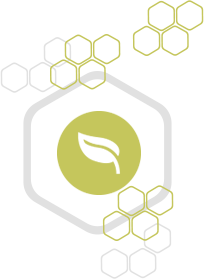Vegetarian and Vegan Diets
Millions of Americans are vegetarians, and millions more restrict their meat intake somewhat. You might choose a vegetarian diet because you think it is healthier, or for ethical reasons. Vegetarian diets are also more environmentally friendly than meat-heavy diets. There are a few general types of vegetarian diets.
- Pesco-vegetarians eat seafood but not meat or poultry.
- Ovo-lacto vegetarians eat eggs and dairy products, but no meat, poultry, or seafood.
- Vegans or strict vegetarians eat no animal products, including meat, poultry, seafood, eggs, and dairy products.

Advantages
- Lower intake of cholesterol-raising saturated fat from meat and poultry.
- Possibly higher intake of fruits and vegetables, leading to higher intake of fiber and other nutrients.
Disadvantages
- Can easily be less healthy than a diet with meat if you choose sugary and starchy foods to replace lean proteins and get saturated fat from butter, full-fat cheese, and trans fats.
- Veganism especially can lead to deficiency of vitamin B12, which is only naturally in animal-based foods.
- Can lead to protein deficiency after weight loss surgery if you are not careful.
- Has no focus on weight control behaviors such as controlling portions or calories.
Vegetarianism and Weight Loss Surgery
You can follow a vegetarian diet after weight loss surgery as long as you stick to the principles of the bariatric diet. You will need to focus on protein even more than you would if you were eating meat and poultry. Select protein first at each meal. That can include beans, lentils, soy products such as tofu, soybeans, and soy-based meat and dairy substitutes, peanut butter, and nuts. If you are a lacto-ovo vegetarian, you can also have egg whites and non-fat dairy products.
Also, follow these guidelines.
- Measure portions carefully and stick to small serving sizes.
- Be careful about nutrient deficiencies, such as vitamin B12 (which is in animal products), calcium (which is in dairy products), and omega-3 fatty acids (which come from fish).
- Continue to make nutrient-dense choices, such as choosing whole grains like wheat bread instead of refined grains like white bread.
